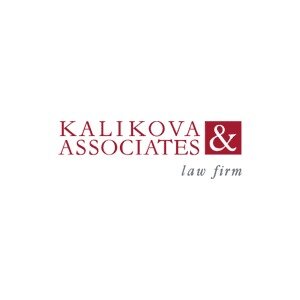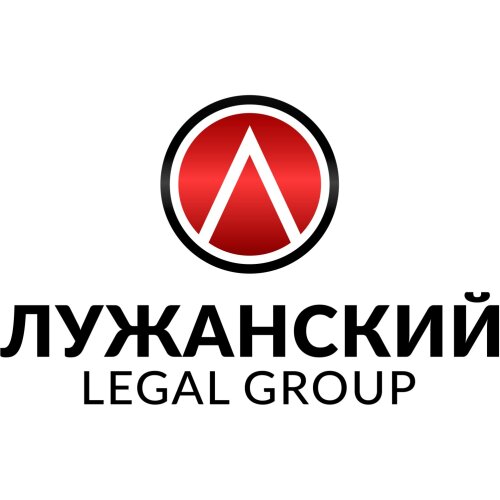Best Water Law Lawyers in Bishkek
Share your needs with us, get contacted by law firms.
Free. Takes 2 min.
List of the best lawyers in Bishkek, Kyrgyzstan
About Water Law in Bishkek, Kyrgyzstan
Water Law in Bishkek, Kyrgyzstan governs the ownership, management, allocation, and use of water resources within the country and especially the capital city. Due to the importance of water for people, agriculture, industry, and the environment, regulations are in place to manage access and resolve disputes. The legislative foundation of Water Law in Kyrgyzstan is the Water Code of the Kyrgyz Republic, which outlines general principles, rights, responsibilities, and the procedures for using surface and groundwater resources. Local authorities within Bishkek also implement policies and by-laws for the urban water supply, waste management, and protection of water bodies.
Why You May Need a Lawyer
There are several common scenarios where you might need the assistance of a lawyer specializing in Water Law in Bishkek:
- Disputes over water allocation or water rights among property owners, neighbors, or companies
- Questions about permits for drilling wells, using groundwater, or wastewater disposal
- Land development or construction projects that affect water sources or drainage
- Concerns about environmental damages caused by water pollution or illegal water discharge
- Understanding your legal responsibilities as a business or property owner regarding water protection
- Compliance with city regulations on water consumption, utility billing, or infrastructure repairs
- Appealing governmental decisions on water use, limits, or penalty assessments
- Negotiating agreements with municipal water suppliers or other stakeholders
Local Laws Overview
Water Law in Bishkek is based primarily on the Kyrgyz Republic’s national Water Code, but municipal regulations and enforcement are also significant. Some key aspects to be aware of include:
- Water resources are the property of the state, and their use is permitted through licensing and permits
- Water users must avoid harming the environment and neighboring users
- Commercial use of water (for example, factories, businesses, or agriculture) generally requires additional permits and may include fees
- Domestic water use (for personal or household needs) has certain protections but still must comply with health and sanitation standards
- Municipal authorities manage water supply and sewage systems, setting rules on connection, quality, and pricing
- Groundwater extraction, even for private wells, is regulated to avoid overuse and contamination
- Polluting water resources is forbidden and can result in administrative or criminal penalties
Frequently Asked Questions
What is the main law governing water use in Bishkek?
The main law is the Water Code of the Kyrgyz Republic, which outlines rights, obligations, and procedures related to water use for all individuals and legal entities.
Do I need a permit to use water from a river or groundwater?
In most cases, yes. Permits are required for commercial, industrial, or agricultural use. Personal and household use may be permitted within established limits, but any significant extraction should be approved by local authorities.
Who is responsible for resolving water disputes in Bishkek?
Local government bodies and courts handle water-related disputes, depending on the nature of the issue. Administrative agencies may resolve regulatory matters, but legal representation is recommended for complex cases.
Can my neighbor block my access to a water source?
No, neighbors cannot unreasonably restrict access to legally permitted water sources. If such issues arise, legal intervention may be needed to resolve disputes according to Water Code provisions.
What should I do about pollution or illegal dumping into water bodies?
Report incidents to the State Agency for Environmental Protection and Forestry or the municipal environmental department. Legal action can be taken against violators, including fines and remediation requirements.
How do I get a permit or license for water use?
Application is typically made to the local water management authority or through the State Agency for Water Resources. The process involves documentation, technical assessments, and sometimes public hearings.
What penalties exist for violating Water Law?
Penalties can range from administrative fines to criminal liability, depending on the severity of the violation. Unauthorized pollution or overuse of water resources can result in serious consequences.
Are there restrictions on drilling wells in Bishkek?
Yes. Drilling private or industrial wells requires authorization from municipal and environmental authorities to prevent aquifer depletion and protect public health.
Is it possible to transfer or sell water rights?
Water rights are generally not property in the traditional sense, but certain permits or usage rights may be transferrable with official approval and compliance with regulations.
How is water quality regulated for public supply in Bishkek?
Municipal water companies must adhere to national and local standards for water quality, regularly test supplies, and report to supervisory authorities. Residents can report concerns to sanitary-epidemiological services.
Additional Resources
If you need more information or assistance with Water Law in Bishkek, consider reaching out to these bodies and organizations:
- State Agency for Water Resources under the Government of the Kyrgyz Republic
- Kyrgyz Ministry of Natural Resources, Ecology and Technical Supervision
- Bishkek Mayor’s Office - Department of Municipal Services
- State Agency of Environmental Protection and Forestry
- Local Bar Associations and legal aid clinics
- Environmental NGOs, such as BIOM or Aarhus Centers in Kyrgyzstan
- Bishkekvodokanal (municipal water supply company)
Next Steps
If you find yourself facing a legal issue related to water resources in Bishkek, Kyrgyzstan, here are recommended steps:
- Gather all relevant documentation, such as permits, correspondence, contracts, or site plans
- Contact the appropriate municipal or state agency to seek clarification or lodge a complaint, if necessary
- Consult with a lawyer who specializes in Water Law to review your situation and advise on legal rights and options
- If negotiation is possible, try to resolve the issue amicably, but be prepared to escalate the matter to administrative or court proceedings if needed
- Stay informed about local regulations and compliance requirements to avoid future issues
Acting quickly and consulting a qualified legal professional can help protect your interests and ensure compliance with Water Law in Bishkek.
Lawzana helps you find the best lawyers and law firms in Bishkek through a curated and pre-screened list of qualified legal professionals. Our platform offers rankings and detailed profiles of attorneys and law firms, allowing you to compare based on practice areas, including Water Law, experience, and client feedback.
Each profile includes a description of the firm's areas of practice, client reviews, team members and partners, year of establishment, spoken languages, office locations, contact information, social media presence, and any published articles or resources. Most firms on our platform speak English and are experienced in both local and international legal matters.
Get a quote from top-rated law firms in Bishkek, Kyrgyzstan — quickly, securely, and without unnecessary hassle.
Disclaimer:
The information provided on this page is for general informational purposes only and does not constitute legal advice. While we strive to ensure the accuracy and relevance of the content, legal information may change over time, and interpretations of the law can vary. You should always consult with a qualified legal professional for advice specific to your situation.
We disclaim all liability for actions taken or not taken based on the content of this page. If you believe any information is incorrect or outdated, please contact us, and we will review and update it where appropriate.











